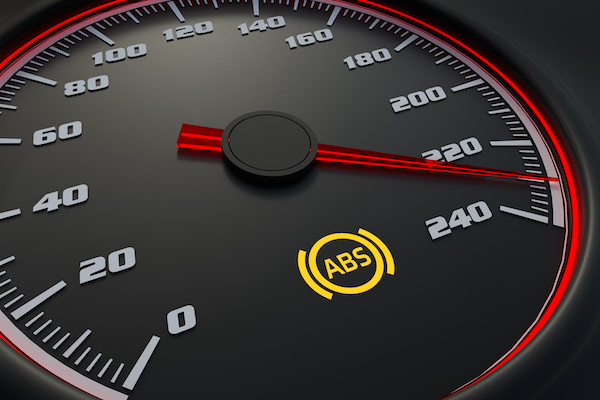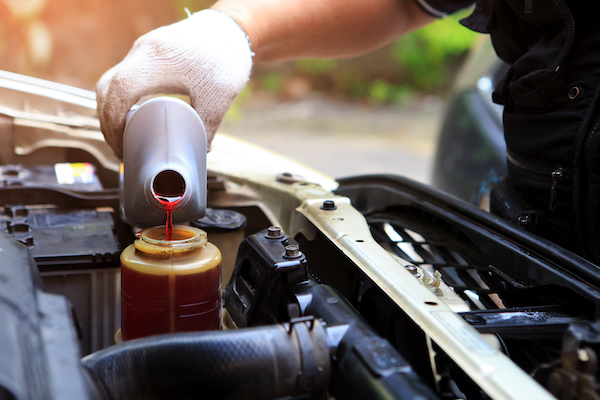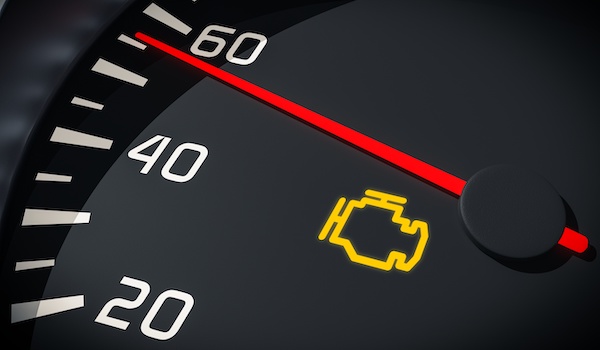Posted on 11/29/2021

Driving on the highway can be intimidating, especially if it's not something you're familiar with. Even with years and years of driving experience, it can still be scary to merge into a busy lane or see somebody fly past you in the left lane. Not only that, but highway vehicle accidents tend to be more severe and lead to more injuries than those in a parking lot or in the city. We recognize some of your concerns, and we've put together a list of tips and tricks to follow to ensure you drive safely on the highway. The right lane is the safest. If you are uneasy about driving at such high speeds, we recommend staying in the right lane. The left lane is intended for passing, and it's where you'll find the speedy drivers. You're more likely to stick to the speed limit by sitting in the right passage. Remember to use your mirrors. Drivers need to utilize their rearview and side mirrors on the highway. Because of the extra space and more cars ... read more
Posted on 10/27/2021

Autumn is hands down my favorite season. It's gorgeous, the weather is just the right amount of brisk, and everything is just cuddlier! It even smells amazing. But the best thing about the season has to be all of the fun fall-themed activities there are to do. From taking it easy to getting your workout on, I'm here to help you have your best Eugene autumn ever! Visit the Pumpkin Patch You can get the pumpkin patch experience you've been yearning for. Not only are there pumpkins to choose from, but there are tons of great photo ops to share on social media. Once you've picked that perfect pumpkin, you can go home to carve and decorate your home. Go to an Apple Orchard Apple picking is an autumnal classic, and Detering Orchards is a perfect place to do it at. Here, you can enjoy the fresh air, drink some cider, and munch on the crisp apples. The best part of the experience is that you can pick the fruit yourself. Go to a Football Game Many of us are looking f ... read more
Posted on 9/28/2021

If you drive a more modern vehicle, then there's a high chance it's equipped with an anti-lock brake system (ABS). The ABS is implemented to help you steer better and avoid skidding whenever you brake. While ABS has been around since the 80s, it wasn't a standard on most vehicles until now. Thankfully, we have ABS to keep us all safer! Because ABS prevents your wheels from gliding, you can steer your vehicle when you're braking or not. ABS comes equipped with various sensors that track wheel speed to determine if any of the wheels are tempted to lock up. If a wheel does stiffen up, a group of hydraulic valves lessens how much brake force is applied to said wheel. What Happens if Your ABS Has a Problem? First off, you will be signaled with the problem on your dashboard. An ABS light will pop up on your dash. The good news is that your vehicle won't suddenly lose its braking abilities. The bad news is you won't have that extra assistance t ... read more
Posted on 8/23/2021

The answer to this question is, "It depends." On what? Several factors affect the time between transmission fluid changes, and the first determining factor is what kind of car you drive. First, check to see if your car is a model with a measuring dipstick under the hood. Some newer models will not have this old-fashioned tool. Mechanic shops will keep a shop dipstick or use a similar oiling plug to check the levels on cars without a built-in dipstick. In this situation, consult your owner's manual or our experts for recommended mileage checkpoints at which transmission fluid changes are recommended. These checkpoints will vary depending on how much and how often you tow heavy loads. Sometimes, newer maintenance schedules will leave off transmission fluid changes, so owners may be left in the dark about when to change their fluid. Even in this case, for more recent car models, it is still likely a good idea to have a professional check the fluid at a cert ... read more
Posted on 7/21/2021

Everyone loves waking up to a plate of delicious pancakes or waffles and the sweet smell of maple syrup. When it comes to your vehicle, however, it is not so much of a pleasure. A sweet, syrupy smell in your car is a significant sign of an issue. If you notice this sweet syrupy smell, there's a strong possibility that you've got a coolant leak. Coolant, a solution comprised of water and antifreeze, has an essential role in your vehicle. It is responsible for regulating the engine's temperature to avoid overheating. The fluid is essentially a temperature transferer, and it provides heat to your cabin heating and defrosting systems. Coolant also has the added benefit of preventing corrosion. The coolant in your vehicle flows throughout the engine, hoses, radiator, and heater core. The smell of maple syrup implies that coolant is leaking within one of those areas in your vehicle. When coolant leaks, the amount of coolant that should be circulating ... read more
Posted on 6/28/2021
.jpeg)
We all love summer. You can finally embark on that cross-country road trip or a summer vacation you have been planning for months. Unfortunately, your car batteries might not share the same sentiments. The immense summer heat can quickly take a toll on your battery, leaving you stranded miles away from home, spoiling all the fun. But this does not need to happen. With a bit of care and maintenance, your car battery will be healthy and ready to go every time you turn on the ignition. Here are some brilliant maintenance tips to help you prepare your vehicle battery for the hot summer weather: Clean Your Battery Terminals Sometimes, dirt and corrosion might accumulate around your car battery terminals, dramatically reducing its performance. Corrosion is a poor heat conductor, preventing a free flow of current and, in worse scenarios, stopping it altogether. Dirt, on the other hand, will act as a conductor, quickly draining your battery current much quickly. Fortunately, a few minute ... read more
Posted on 5/27/2021
.jpeg)
When you own a vehicle, it is essential to keep up with the routine maintenance on it. Therefore, you should know when and how to keep up with these components of the car. If you own an automobile, you need to know a bit about the timing belt and when to change it. What is a Timing Belt and Why is it Used? There are many purposes of a timing belt. Some include keeping the crankshaft and cam rotating. It also is charged with keeping the valves of the engine opening and closing. This will allow fuel to come into and go out of the engine. The main purpose of the timing belt is to coordinate the engine's functions. When You Should Replace Your Car's Timing Belt Typically, there are no warning signs that the vehicle's timing belt is becoming worn. It is, however, an essential part of the maintenance to keep the car running at its prime, to replace this belt as needed. You do not want to wait for the timing belt to just break before you replace it. That could leave you strand ... read more
Posted on 4/16/2021

When you see the check engine light, many things will run through your mind. Although the light notifies you of a possible engine malfunction, it is often difficult to determine the extent of damage the defect may cause. Why You Should Never Ignore Your Check Engine Light illuminated on our dashboards is often the main channel to interact with your vehicle engine systems. This intuitive feature sends you a warning once the car's onboard computer detects a deviation from normal function. The monitoring system may send car engine check light signal for the following reasons; however, the list is not limited to the listed malfunctions. When the Check Engine Light Comes On The check engine light remains among the most misunderstood symbols on the car dashboard. It may signal a wide array of malfunctions; therefore, it is critical to visit your mechanic to determine its causes and potentially prevent further damage or losses. The check engine light comes on for the following reasons ... read more
Posted on 3/10/2021
.jpeg)
Sometimes circumstances force you to take a bad road and avoiding potholes and bumps becomes a challenge. When driving on these rough roads, it is important to remember that they may interfere with your car's wheel alignment. A proper wheel alignment can be the first thing that saves your life if you need to make a quick turn or dodge something. Below are some 5 signs to watch out for in misaligned wheels. Steering Wheel Vibration Poor alignment causes the steering wheel to vibrate or rock horizontally. It happens repeatedly and can sometimes be so bad to the extent that the entire car shakes as it runs on the road. That happens because two tires are trying to pull against each other. It becomes difficult to understand which direction the car is heading. Irregular Tire Wear It is critical to check whether the front tires have an even wear pattern. If so, that's an indication that the wheels are in line. Do the same for the rear wheels. If you notice that the tires have unev ... read more
Posted on 2/3/2021
.jpeg)
Brake fluid operates under extremely high temperatures and high pressure. Without the proper amount of clean brake fluid, your vehicle would not stop when you push the brake. So, your car must get the right type and amount of brake fluid. And it must be clean. There are no set times or millage limits to change your vehicles' brake fluid. You will find that the timing varies by type of car, driving conditions you typically encounter, and the manufacturer's recommendations. A nice rule of thumb is to check with your car manufacturers' suggested maintenance schedule and check in with your repair shot during regular oil changes; the expected change duration is somewhere between four to five years. But if something seems a little off, it could be time to change your brake fluid. Here are a few telling signs that it just might be time to consider heading over to your trusted repair shop to check your brake fluid. One of the surest ways to know that your brake fluid needs a cha ... read more